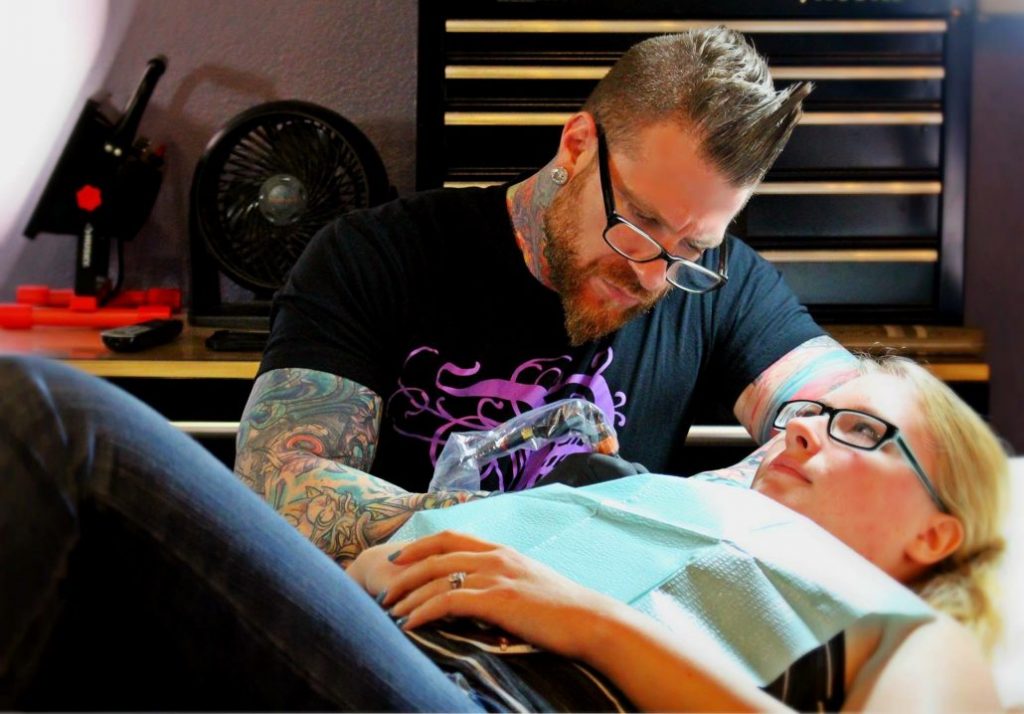Rusty Smart from Black Amethyst Tattoo Gallery in St. Petersburg, Florida reveals the secrets behind black light tattoos and their growing popularity…
C’mon, admit it – the thought of your tattoos glowing like a nuclear-waste spawned superhero is pretty cool. And although not everyone will actually go for it, there’s no denying that UV ink is hot.
First things first – tattoos that incorporate UV inks do not – repeat – do not – glow in the dark like those greenish star stickers that were on your childhood bedroom ceiling (or your current bedroom ceiling if you are living a rave till the grave vibe). That’s because they use ultraviolet-reactive ink, which needs the glow of a black light bulb or tube to show and glow. No light, no bueno.
As with any new or newish tattoo technique, it’s important that you work with an artist who is knowledgeable and experienced. No one wants you to be a guinea pig. Except maybe other guinea pigs.

UV ink is generally thinner, and many artists would say harder to work with. That means it’s best suited for highlighting designs, like providing the glow of a firefly or the flames of a rocket or the sexy stare of an alien.
UV ink can feel more like gray wash than normal color to the artist applying it. Care must be taken not to overwork the skin. Lighter colours – yellow, pink, orange and some greens – reflect better than darker hues like blue and purple. Stencil residue can contaminate UV ink, so it’s important to work clean as well.
After healing, the UV sections of tattoos can appear almost pastel. They have a delicate tone and can be mistaken for watercolor work. UV tattoos can remain “active” for years, the same way that brightly coloured tatts can stay vibrant for a long time. Skillful application, conscientious healing and aftercare are vital to longevity.
The safety of glowing UV inks is an open question, but remember, the FDA doesn’t approve any inks for dermal injection. According to the FDA, “many pigments used in tattoo inks are industrial-grade colours suitable for printers’ ink or automobile paint,” implying disapproval but not actually condemning their use. When talking to artists who have done black light tattoos, they report about the usual rate of irritation and scarring as in other tattoos.
If you’re to step into the next wave of ink adornment, talk to your artist and consider the pros and cons. Then boldly go where few have been before…in the dark, with black lights blazing.
What do you think? Do you have a UV tattoo or want one? Let us know.